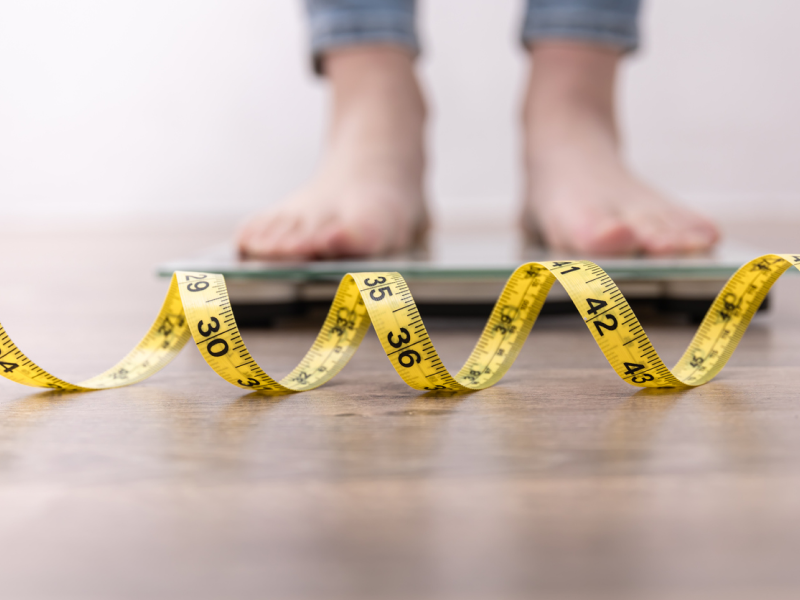
Table of Contents
5 Ways to Help Teenagers Recover From Eating Disorders
Written By: Charlie Health Editorial Team
November 7, 2021
8 min.
Learn more about how to educate yourself on eating disorders and how to offer your unconditional support to a loved one who is struggling.
Learn more about our Clinical Review Process
Table of Contents
“Disordered eating” is often used as an umbrella term to describe how people who feel uncomfortable about food behave around it. While disordered eating isn’t necessarily specific enough to merit a mental health diagnosis of a recognized eating disorder, such as anorexia, bulimia, or binge eating disorder, it can sometimes share the same triggers. These include overexercising, eating beyond the point of fullness to find relief from emotional issues, or feeling consistently guilty for eating food that isn’t perceived as healthy or “good.”
Everyone feels uncomfortable with their body or toward food at some point. But if these worries are regular and go unaddressed, abnormal eating behaviors (among other triggers) can end up spiraling into a diagnosable mental disorder. According to the National Association of Anorexia Nervosa and Associated Disorders, approximately nine percent of the U.S. population has an eating disorder. In addition, 33–57 percent of adolescent girls engage in crash dieting, fasting, self-induced vomiting, diet pills, or the use of laxatives. And eating disorders don’t only affect women—they can affect anyone, whatever their age, gender, ethnicity, sexual orientation, or income level.
Eating disorders stop people from getting the nutrition they need for good health. Over time, imbalances in the body’s metabolism can lead to physical health problems such as malnutrition, electrolyte imbalances, a loss of bone density, and heart problems. The physical problems are, of course, exacerbated by the emotional and psychological stress that accompanies living with an eating disorder.
If you suspect that your teenager has an eating disorder or they’ve been officially diagnosed, you want to do everything you can to help them toward recovery. We all know that a balanced diet keeps us healthy, but eating disorders are rarely about not knowing what balanced eating looks like. Here’s how to help support your loved one if they are struggling with a disordered relationship with food.
1. Educate yourself on eating disorders

Whether your teen has been officially diagnosed with an eating disorder or you’ve noticed disordered eating habits, the first step is to educate yourself. If you’re not sure where to start, try reading journals and studies about adolescent eating disorders to learn more about the signs, symptoms, and statistics.
It’s important to remember that eating disorders can happen to anyone, and adolescents who focus on their weight and shape are at the highest risk of developing disordered eating behaviors. Contrary to popular belief, your teen does not need to be underweight to have an eating disorder. In fact, less than six percent of people with eating disorders are medically underweight.
Some activities where appearance or body weight is important may also increase the risk, such as modeling, gymnastics, ballet, or wrestling. In many cases, parents miss the early signs of eating disorders because anxiety about appearance is so common in adolescents.
The signs and symptoms may vary depending on the specific type of eating disorder. Keep an eye out for behaviors and attitudes that might signal unhealthy behavior, such as:
- Extreme weight loss or failure to meet expected developmental weight gain
- Frequently skipping meals or refusing to eat
- Excessively focusing on food, body weight, or body shape
- Increased talking about food, calories, weight, body image, etc.
- Frequent checking in the mirror for perceived flaws
- Using laxatives, diuretics, self-induced vomiting, or enemas
- Frequent trips to the bathroom during, or immediately following meals
- Complaining about feeling cold (especially fingers and toes)
- Discomfort in fitted clothes
If you notice a few of these red flags, that doesn’t necessarily mean that your teenager has a clinically diagnosable eating disorder. Still, these are dangerous behaviors and signs that you should monitor closely, especially if your teen is predisposed to mental health issues. It’s also worth educating yourself on lesser-known disorders, such as pica, rumination disorder, and orthorexia.
Do you need more support with
your mental health?
Charlie Health can help.
2. Offer your unconditional support
The unconditional support you provide can make all the difference in your teen’s recovery. The most important thing to remember about showing your love and support is timing. In most cases, it’s much easier to show your support when your teen reaches a treatment milestone. But it’s completely normal to experience setbacks along the way—and many people with eating disorders experience relapse after treatment has ended. Especially during tough times, it’s essential to show your teen the love and support they deserve.
The following are some tips for supporting your teenager throughout treatment.
- Foster positive self-esteem. Avoid commenting on your teen’s body or physical appearance. Instead, foster positive self-esteem by respecting their accomplishments and supporting their goals. Listen when your teen speaks. Look for positive qualities in your teenager, such as their curiosity or a sense of humor. Remind your child that your love and acceptance are unconditional—not based on their weight or appearance.
- Set a good example. Don’t just tell your teenager to “eat healthier” or “gain weight.” Instead, set a good example by preparing nutrient-dense foods, helping them eat foods that they feel safe eating, and eating a balanced diet yourself. On the same note, avoid commenting on other people’s weight. Don’t make or allow hurtful comments or jokes based on people’s physical characteristics or body shape.
- Be patient. Lasting recovery is possible, but it’s important not to rush the treatment process. Depending on the severity of your teen’s eating disorder, recovery may take a few weeks or a few months, not including the possibility of relapse.
3. Encourage healthy eating habits

Ideally, by the time your child reaches adolescence, they should have a good idea of what a varied diet consists of. However, it’s never too late to adopt or continue to encourage a healthful lifestyle, and encouraging healthful eating habits at home can help your teen during recovery.
Some tips for encouraging healthy eating habits at home include the following:
- Avoid restricting or moralizing foods. Instead of describing foods as “good” or “bad,” aim for balance. Eat adequate fruits, vegetables, protein, and other nutrients, but allow room for sweets and salty snacks too.
- Practice intuitive eating. Encourage your teen to listen to their body by eating when they’re hungry and stopping when they’re full. This way, they’ll learn to recognize whether they’re eating out of hunger or to cope with uncomfortable feelings like boredom. With that said, teens typically need more food as they’re growing and developing.
- Talk to your teen about the benefits of healthy eating. A healthy diet helps with concentration in school, helps teens feel more energized, and contributes to their overall well-being. This can motivate your child to make more healthful choices, and it’ll probably mean more to your child than information on the serious health consequences of eating disorders.
- Get them involved. Ask your teen for help with preparing food, planning family meals, and grocery shopping. If your teen feels uncomfortable eating certain foods, you can gradually work to incorporate those foods into their diet when they’re more able to handle it.
Join the Charlie Health Library
Get mental health updates, research, insights, and resources directly to your inbox.
You can unsubscribe anytime.
4. Join a support group
For both adolescents and parents, eating disorder support groups can offer wide-ranging benefits. For teenagers, support groups provide a valuable source of connection, helping them realize they're not alone in struggling with food-related issues. Support groups provide a safe, supportive environment for teens to share their experiences, frustrations, and successes with people in similar situations.
Meanwhile, for parents, support groups can help you better support teens during treatment. You'll be able to share your experiences and learn valuable tips from other parents with children in eating disorder treatment. Whether you'd like to learn more about your teen's experience or figure out how to talk to your teen about their disorder, a support group can play a significant role in your teen's recovery.
You can find information on local support groups through Eating Disorder Hope. In addition, the National Eating Disorders Association offers a helpline and online chat for individuals with eating disorders and their family members here.
5. Explore treatment options together

The majority of individuals with eating disorders require professional treatment to fully recover. Even if your teen isn't showing physical symptoms, it's worth seeking professional help. Left unchecked, unhealthy behaviors can pave the way to a diagnosable eating disorder. For example, emotional eating might lead to binge eating disorder, while body image disturbances might spiral into anorexia nervosa.
If you're not sure where to start, consider asking your teen's primary care doctor for advice. Most eating disorder treatment plans involve a holistic approach from a team of professionals specializing in eating disorder treatment. Depending on the specific treatment program, your teen's treatment team might include:
- A mental health provider, such as a psychologist or teen therapist, who provides talk therapy (psychotherapy)
- A registered dietician, who provides education on nutrition and healthy meal planning
- Medical or dental specialists, who treat physical conditions and dental problems
- Their parents, caregivers, or other family members, who should be actively involved in treatment
If you choose an outpatient treatment program, make sure to accompany your teen to their appointments. This way, you're showing support for their treatment efforts. In addition, you can talk to them about their treatment session on the way home. Alternatively, if you choose a virtual outpatient program, your teen can access mental health treatment from the comfort of home.
At Charlie Health, our goal is to ensure the effective delivery of care for all clients. As such, we are unable to accept clients with any eating disorder as a primary diagnosis at this time.
Contact us
While we do not treat patients with active eating disorders, our programming is designed to facilitate long-term, sustainable recovery once our patients are physically well enough to participate.
Seeking treatment for an eating disorder can feel scary and overwhelming, but it doesn't have to be. At Charlie Health, our expert team of clinicians works with our clients and families to understand their specific needs. Then, we'll help your teen develop an individualized treatment plan to include the most effective treatment modalities for them.
Our intensive outpatient program (IOP) helps adolescents and young adults successfully overcome their mental health struggles with personalized treatment. Our IOP is designed for teenagers and young adults who need more support than one-time-per-week therapy offers. We provide a comprehensive treatment solution that includes groups, family, and individual therapy to help your teen navigate their mental health. Get started with your healing journey today.





